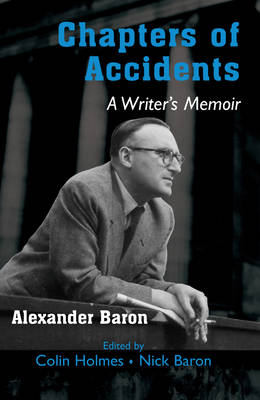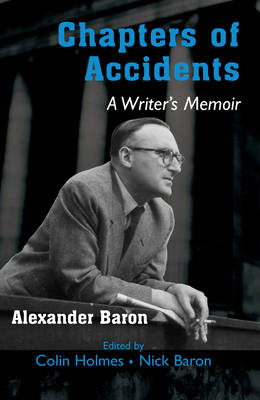
- Afhalen na 1 uur in een winkel met voorraad
- Gratis thuislevering in België vanaf € 30
- Ruim aanbod met 7 miljoen producten
- Afhalen na 1 uur in een winkel met voorraad
- Gratis thuislevering in België vanaf € 30
- Ruim aanbod met 7 miljoen producten
Zoeken
Omschrijving
'We have waited a long time for this war's All Quiet on the Western Front, ' wrote the critic V.S. Pritchett. 'Here It is.' He was reviewing the 1948 novel From the City From the Plough by Alexander Baron (1917-1999). With its success, Baron became a full-time writer. His best-known later novels include The Human Kind (1953), The Lowlife (1963), and King Dido (1969). Between the 1950s and 1980s he also wrote many film and television scripts. Here Baron recounts the experiences of his childhood and youth that shaped him as a writer and provided subject matter for his novels. He evokes the sights, sounds, and aromas surrounding him growing up in a Jewish family in Hackney, East London, in the 1920s. Later, aware of the rising fascist threat, Baron was drawn to left-wing politics, becoming a leader of Labour's youth organisation. Although not formally a member, he also worked secretly for the Communist Party as an organiser and propagandist. With World War Two his life changed again. A keen solider, he fought with the Pioneer Corps in Sicily, Italy, and northern France. After a hard transition to post-war life, he worked at Unity Theatre in London while writing his breakthrough novel.
Specificaties
Betrokkenen
- Auteur(s):
- Uitgeverij:
Inhoud
- Aantal bladzijden:
- 330
- Taal:
- Engels
Eigenschappen
- Productcode (EAN):
- 9781803710297
- Verschijningsdatum:
- 21/10/2022
- Uitvoering:
- Paperback
- Formaat:
- Trade paperback (VS)
- Afmetingen:
- 150 mm x 228 mm
- Gewicht:
- 498 g

Alleen bij Standaard Boekhandel
+ 47 punten op je klantenkaart van Standaard Boekhandel
Beoordelingen
We publiceren alleen reviews die voldoen aan de voorwaarden voor reviews. Bekijk onze voorwaarden voor reviews.











